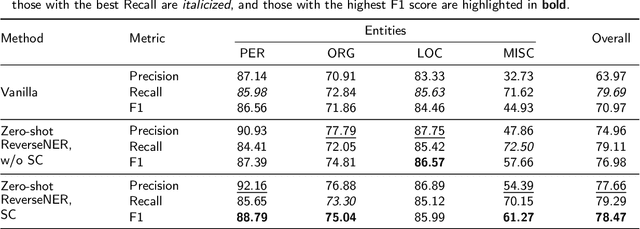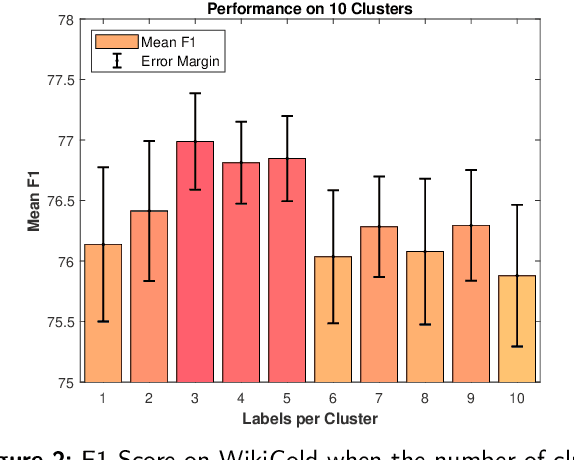ReverseNER: A Self-Generated Example-Driven Framework for Zero-Shot Named Entity Recognition with Large Language Models
Paper and Code
Nov 04, 2024



This paper presents ReverseNER, a framework aimed at overcoming the limitations of large language models (LLMs) in zero-shot Named Entity Recognition (NER) tasks, particularly in cases where certain entity types have ambiguous boundaries. ReverseNER tackles this challenge by constructing a reliable example library with the reversed process of NER. Rather than beginning with sentences, this method uses an LLM to generate entities based on their definitions and then expands them into full sentences. During sentence generation, the LLM is guided to replicate the structure of a specific 'feature sentence', extracted from the task sentences by clustering. This results in well-annotated sentences with clearly labeled entities, while preserving semantic and structural similarity to the task sentences. Once the example library is constructed, the method selects the most semantically similar example labels for each task sentence to support the LLM's inference. We also propose an entity-level self-consistency scoring mechanism to improve NER performance with LLMs. Experiments show that ReverseNER significantly outperforms traditional zero-shot NER with LLMs and surpasses several few-shot methods, marking a notable improvement in NER for domains with limited labeled data.
 Add to Chrome
Add to Chrome Add to Firefox
Add to Firefox Add to Edge
Add to Edge